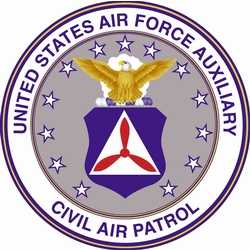Fri, Jul 22, 2011
Six Hundred Students Take Advantage Of Week-Long Summer
Sessions
Civil Air Patrol’s National Emergency Services Academy
(NESA) is expected to support training for as many as 600
students for a pair of week-long summer sessions in southern
Indiana.

“NESA will be Civil Air Patrol’s largest event at
the national level again this year. It is a great opportunity for
CAP members from across the country to come together to learn how
to help their communities respond to emergencies,” said Lt.
Col. John Desmarais, NESA’s founder and deputy director of
operations at CAP National Headquarters.
To date, Desmarais said 573 CAP students are registered to
attend NESA’s two sessions – 311 during the first week
and 262 during the second week. Both sessions will be supported by
more than 150 volunteer staff. Training for these citizen
volunteers from across the country begins on Saturday at the Camp
Atterbury Joint Maneuver Training Center, an Indiana National Guard
facility in Edinburgh, Ind. The training ends on Aug. 7.
NESA combines task-based training with practical application
that has become the standard for CAP wings nationwide. NESA is made
up of three schools – the Ground Search and Rescue School,
the Incident Command System School and the Mission Aircrew School,
each providing courses focusing on specific skills:
- Ground Search and Rescue School provides members with the
skills they need to expertly perform ground searches for missing
people and aircraft.
- Incident Command System School covers the skills needed for
members to manage missions and support federal, state and local
agencies. The attendees not only participate in academic courses as
outlined by the Department of Homeland Security, but also learn how
to use tactical systems.
- Mission Aircrew School teaches critical skills needed for
pilots, observers, airborne photographers and other crew members.
Crew members learn how to take damage assessment photos from the
air, which are critical after disasters like tornadoes or
floods. They’ll also learn how to search for missing
aircraft visually as well as with electronic search tools.
“NESA has become the premier emergency services training
program for Civil Air Patrol,” said Maj. Gary Brockman, NESA
director. “It showcases the capabilities of our dedicated
volunteers to support their communities.”
In their role as members of the U.S. Air Force auxiliary, CAP
volunteers perform 90 percent of all inland search and rescue
missions as tasked by the Air Force Rescue Coordination Center at
Tyndall Air Force Base, Fla. In fiscal year 2010, CAP was credited
with saving 113 lives. To date in fiscal year 2011, CAP has been
credited with an additional 48 lives saved.
More News
“We respectfully call on the City of Mesa to: 1. Withdraw the landing fee proposal immediately 2. Engage with the aviation community before making decisions that impact safet>[...]
High Speed Taxiway A long radius taxiway designed and provided with lighting or marking to define the path of aircraft, traveling at high speed (up to 60 knots), from the runway ce>[...]
Aero Linx: International Federation of Airworthiness (IFA) IFA uniquely combines together all those with responsibility for policies, principles and practices concerned with the co>[...]
Controller’s Expectation That VW02 Would Have Departed Sooner Led To An Inadequate Scan And Loss Of Situational Awareness Analysis: A Robinson R-44 helicopter N744AF, VW02 (V>[...]
A Few Questions AND Answers To Help You Get MORE Out of ANN! 1) I forgot my password. How do I find it? 1) Easy... click here and give us your e-mail address--we'll send it to you >[...]
 Aero-News: Quote of the Day (12.09.25)
Aero-News: Quote of the Day (12.09.25) ANN's Daily Aero-Term (12.09.25): High Speed Taxiway
ANN's Daily Aero-Term (12.09.25): High Speed Taxiway ANN's Daily Aero-Linx (12.09.25)
ANN's Daily Aero-Linx (12.09.25) NTSB Final Report: Diamond Aircraft Ind Inc DA20C1 (A1); Robinson Helicopter R44
NTSB Final Report: Diamond Aircraft Ind Inc DA20C1 (A1); Robinson Helicopter R44 ANN FAQ: Q&A 101
ANN FAQ: Q&A 101



